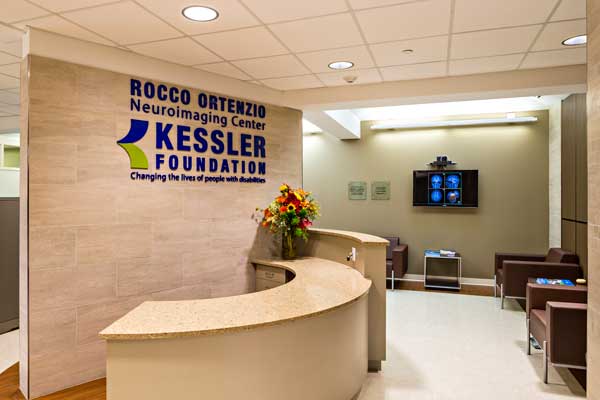New study advances knowledge of role of brain pathology and cognitive fatigue in multiple sclerosis
 Kessler Foundation researchers demonstrate relationship between rate of cognitive fatigue in MS and microstructural brain changes
Kessler Foundation researchers demonstrate relationship between rate of cognitive fatigue in MS and microstructural brain changes
East Hanover, NJ. October 6, 2022. Using advanced diffusion-weighted imaging, Kessler Foundation researchers investigated the relationship between rate of cognitive fatigue and microstructural changes in the brains of persons with multiple sclerosis (MS). Their findings help to fill a gap in the current literature by associating microstructural white matter (i.e., tracts that send signals within the brain) and basal ganglia (i.e., structures deep within the brain that have been linked to fatigue in neurological populations, including MS) with changes to the rate in which persons with MS fatigue over time.
Their findings were reported in Frontiers in Neurology on July 04, 2022, in the open access article entitled “Associations of White Matter and Basal Ganglia Microstructure to Cognitive Fatigue Rate in Multiple Sclerosis,” (doi: 10.3389/fneur.2022.911012). The authors are Cristina Román, PhD, Glenn Wylie, DPhil, John DeLuca, PhD, and Brian Yao, PhD.
The study was conducted at the Rocco Ortenzio Neuroimaging Center at Kessler Foundation, which is dedicated solely to rehabilitation research. Participants were 62 persons with relapsing-remitting MS who completed seven trials of a within-scanner cognitive fatiguing task. Participants rated their level of cognitive fatigue at baseline and after each trial. The slope of the regression line of all eight fatigue ratings was designated as “cognitive fatigue rate.” Participants also completed questionnaires measuring depression, anxiety, and trait fatigue. Brain variables included measures of white matter and basal ganglia microstructural integrity.
“We found that cognitive fatigue rate was related to the integrity of several white matter tracts and the putamen, meaning we saw more compromised microstructural integrity in these areas, specifically those related to basal ganglia connectivity (i.e., “fatigue network”), in people with MS who tended to fatigue faster over time,” said lead author Dr. Román, National MS Society-sponsored research fellow at Kessler Foundation. “The use of cognitive fatigue rate, rather than the often used “trait fatigue,” brings us closer to understanding how brain pathology may be impacting the experience of fatigue in the moment. In addition, these results hold promise for continuing to unpack the complex construct that is cognitive fatigue. Both are crucial for developing effective interventions for managing disabling fatigue in persons with MS and other neurological conditions.”
Funding: Kessler Foundation, National Multiple Sclerosis Society (RG-1701-26930)
Learn more about ongoing studies at Kessler Foundation at Join Our Research Studies | Kessler Foundation
About Kessler Foundation
Kessler Foundation, a major nonprofit organization in the field of disability, is a global leader in rehabilitation research that improves cognition, mobility, and long-term outcomes, including employment, for people with neurological disabilities caused by diseases and injuries of the brain and spinal cord. Kessler Foundation leads the nation in funding innovative programs that expand opportunities for employment for people with disabilities.